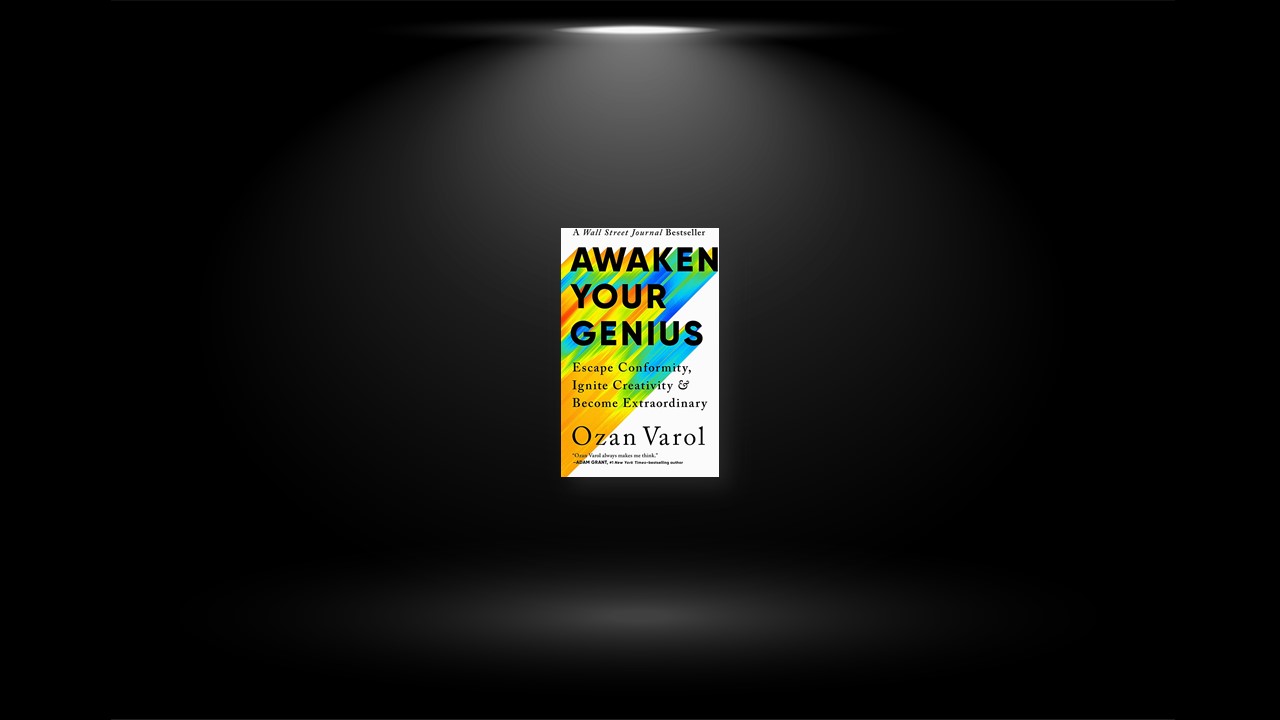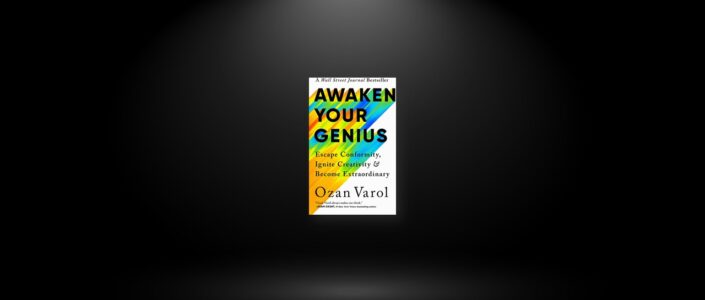Uneducate
The word educate is related to the Latin word eductus. And eductus means to “educe” or to “draw out” of a “person something potential or latent.” In other words, education is supposed to help students develop and ripen what’s already within them. Most education systems do the opposite.
There’s no drawing out. There’s only stuffing in—of knowledge and facts. The teacher fills the empty tanks of young minds with the “content” of the course. The student absorbs knowledge by osmosis and regurgitates it on the exam. Education is all about the passive accumulation of yesterday’s answers to yesterday’s questions. Students aren’t taught how to overhaul old facts, generate tomorrow’s knowledge, and answer questions that haven’t even been asked.
To memorize isn’t to understand. You can’t learn yoga by memorizing yoga poses. You can’t learn to ride a bike by reading a book about it. And you can’t learn science by memorizing the definition of osmosis. There’s a difference, as Richard Feynman says, “between knowing the name of something and knowing something.”
If a child asks you, “How did the dinosaurs die?,” resist the impulse to launch into a lesson about an asteroid hitting the earth. Instead ask, “What do you think could have killed them? How would you figure it out?” When they give you an answer, ask them for more answers. Let them see that there’s often more than one way of framing the question and more than one possible answer to it.
If an employee comes to you and says, “What should I do about this problem?,” don’t immediately deliver a quick and efficient fix. Let them suggest solutions on their own. When you spoon-feed right answers to others, you’re acting like a personal trainer who “helps” clients by lifting their weights for them.
In the end, the ability to reimagine conventional wisdom is far more important than the ability to regurgitate it.
Spectacularly You
Oprah Winfrey was fired from her first job as an evening news reporter. The reason? She couldn’t separate her emotions from her stories. Instead of trying to erase her emotions, Winfrey embraced them. That distinctive quality eventually made Winfrey the world’s most compassionate interviewer and turned her into a household name.
Becoming extraordinary requires becoming more like yourself. When you do that, you become a magnet that attracts some people with the same force that repels others. You can’t be liked by all and disliked by none. If you aim for that unachievable objective, you’ll only reduce the force of your magnet—the very source of your strength. The only way to attract people who like purple is to show your purple.
Embracing your purple doesn’t work if it’s inauthentic. If it’s a gimmick. If you’re just trying to get attention or zigging simply because everyone else is zagging. This isn’t rule breaking for the sake of rule breaking—rebelling without a cause against the establishment. Rather, it’s an intentional bending of the rules, driven by a desire to live in a way that’s aligned with who you are.
Here’s the thing: We notice things because of contrast. Something stands out because it’s different from what surrounds it. If you blend into the background—if you show no idiosyncrasy, no fingerprints, no contrast, no anomaly—you become invisible. You become the background.
It’s only by embracing, rather than erasing, your idiosyncrasies—the things that make you spectacularly you—that you can become remarkable.
Unlock the Wisdom Within
Self-talk is critical to mining deeper insights. “It’s not thought that produces speech but, rather, speech is a creative process that in turn generates thought,” literary scholar Nana Ariel writes. Self-talk helps us discover what we think. It allows us to locate and retrieve preexisting ideas by giving tangible form to our intangible thoughts.
For many thinkers, self-talk takes the form of freewriting—writing down what you think without publishing it. We walk around with numerous unsorted thoughts in our heads. Some are half-baked, some are contradictory, and a lot of them are completely wrong. They stay that way in one big mush because we don’t take the time to sort them out.
Something magical happens when a thought takes shape in words. Freewriting connects you to your intuition and opens a channel between the subconscious and the conscious. It links the depths of your mind directly to your fingers. With nowhere to go—facing only your thoughts and a blank page—a process of self-actualization begins to take place. You begin to find out who you are, what you know, and what you think. It’s the closest thing to splitting open your head and watching your own ideas from a distance.
By letting yourself freewrite, you also let yourself freethink. The suppressed big fish in your subconscious break out of their nets and begin to swim around in your cerebral ocean. The more you release these thoughts—the more you open up your stream of consciousness—the more they come.
Detecting Bullshit
Repetition breeds false confidence. “A lie told once remains a lie, but a lie told a thousand times becomes the truth,” as the popular saying goes. If you repeatedly hear that bats are blind, or that we use only 10 percent of our brains, or that breakfast is the most important meal of the day, you’ll tend to believe it’s true.
These long-standing myths continue to be repeated even when scientific evidence disprove them. Bats aren’t blind. In fact, some species of bats see better than the average human. And the 10 percent figure about the brain “is so wrong it is almost laughable,” notes neurologist Barry Gordon. Over the course of a day we use virtually 100 percent of our brains.
Fact-checkers and journalists are human beings who live in the real world. Like the rest of us, they bring their own political and ideological biases into the process. Liberal sources tend to scrutinize the right, and conservative sources tend to scrutinize the left—while cutting their own tribe serious slack.
Most of us can’t take the time to read and digest scientific studies that concern every aspect of our lives. And even if we read the study, we may not know what to look for or what to ask.
So we turn to the opinions of experts. Unfortunately, the internet is chock-full of supposed experts who claim to have discovered the truth. On the internet, expertise has become a self-proclaimed qualification. Experts become experts by calling themselves that. News outlets desperate for attention resort to a trusted roster of “experts” who favor consistency over accuracy and confidence over nuance.
In the face of rampant misinformation, who do we trust? How do we detect misleading information and separate the useful from the useless? All great thinkers must have what Ernest Hemingway called a built-in, shockproof crap detector.
Exercise skeptical curiosity. What are the supporting facts? Where did the author get these facts? Ask yourself, If I were speaking with the author, what questions would I ask? If I were debating the author, what points would I raise? Watch out for sources that speak in absolutes. Scientific facts exist on a spectrum of truth. Watch out for sources that use clichés or speak in generalities. Does the author have a vested interest in the outcome?
In the end, André Gide had it right: “Believe those who are seeking the truth; doubt those who find it.” Seeking the truth is a continuous process. It won’t generate any immediate answers. In many cases, you’ll find conflicting conclusions and greater uncertainty about the answers. But it’s better to be uncomfortably uncertain than to be comfortably wrong.
Let Go of Your Future
What we cling to defines us—and confines us.
We become hostage to our vision of the future. We end up fixating on one set of circumstances, one path, or one person. We act like the Great Gatsby throwing one party after another, waiting in vain for Daisy to show up. We forget that the possibilities awaiting us might be even better than the Daisys of our current imagination.
Think back to the most noteworthy moments of your life. If you’re like most people, these moments weren’t carefully charted and planned. They transpired precisely because you relaxed into possibility and kept yourself open to mystery. They unfolded in ways far more magical than you ever could have predicted.
When the tree barks change color, we have a choice. We can cower in dread. We can live in denial and cling to the darkening trees, desperately hoping that our old ways of doing things will magically start working again. We can spend our days shaking our fists at the gods in a futile attempt to force the universe to deal us a better hand.
Or we can ease our grip on our plans for tomorrow, just like we shed the skin of yesterday. We can play the hand we were dealt rather than the hand we wish we had been dealt. We can learn to use our skills, products, and services in a way that we haven’t before. We can find a different shelter that will protect us from hungry birds in a soot-stained world.
Life is a dance, but it can’t be choreographed. It requires leaning into curiosity about what will come next instead of demanding that the dance conform to our carefully scripted steps. When we attempt to force outcomes and next steps—when we try to predict what can’t be predicted and when we try to control what can’t be controlled—we get tangled up and can’t tango on.
The wisdom isn’t in your five-year plan or your script. The wisdom is within. The light isn’t at the end of the tunnel. The light is within. If you can act like an improv actor—if you can accept each offer from life with a mindset of “Yes and…”—life becomes a lot more fluid. You can step into new roles, delight in the twists and turns, and arrive at unexpected destinations.


